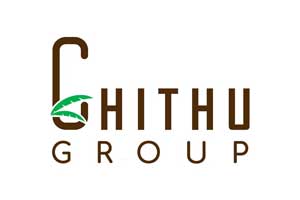Introduction
The coconut industry has witnessed a surge in demand globally, with semi-husked coconuts (also called raw coconut ) being a popular commodity.
However, as the demand for coconuts rises, so does the need for sustainable sourcing practices.
This article lets us look into the intricacies of sourcing sustainable semi-husked coconuts, emphasizing the importance of environmentally friendly and socially responsible practices.
Importance of Sourcing Sustainable Semi-Husked Coconuts
Sourcing sustainable semi-husked coconuts is crucial for various reasons. Firstly, it helps preserve the delicate balance of ecosystems in coconut-producing regions.
Additionally, sustainable practices ensure the well-being of local communities dependent on coconut farming, fostering a more ethical and equitable coconut industry.

Understanding Semi-Husked Coconuts
Definition and Characteristics of Semi-Husked Coconuts
Semi-husked coconuts, also known as partially husked or dehusked coconuts, are harvested before reaching full maturity. They have a brown, fibrous husk partially removed, revealing the nut inside. This specific harvesting stage is essential for certain applications, such as coconut water extraction and culinary uses.
Uses and Benefits of Semi-Husked Coconuts
Semi-husked coconuts serve various purposes, from providing coconut water to cooking and manufacturing coconut-based products. The partial husking facilitates easier extraction of coconut water, making it a popular choice for the beverage industry.
The versatility of semi-husked coconuts extends to the extraction of coconut milk and oil and the use of coconut meat in various culinary applications.
The Need for Sustainability in Coconut Farming
Explanation of Sustainability in the Context of Coconut Farming
Sustainability in coconut farming involves practices that balance ecological, economic, and social considerations. It aims to ensure the longevity of coconut plantations without depleting natural resources, causing environmental harm, or exploiting local communities.
The Impact of Unsustainable Practices on the Environment and Local Communities
Unsustainable coconut farming practices, such as monoculture, excessive pesticide use, and deforestation, can lead to soil degradation and biodiversity loss, negatively impacting water quality.
Additionally, unfair labour practices can harm local communities, contributing to poverty and social unrest.

How to Source Sustainable Semi-Husked Coconuts
Understand the Characteristics:
Familiarize yourself with semi-husked coconuts, which are harvested before full maturity.
Recognize their partially removed brown, fibrous husk, making them suitable for various applications.
Recognize the Importance:
Acknowledge the growing importance of sustainable sourcing in the coconut industry.
Understand that responsible practices contribute to ecological balance and community well-being.
Criteria for Sustainability:
Look for farms employing agro ecological methods, emphasizing biodiversity and reducing synthetic inputs.
Prioritize soil health with sustainable farms that employ cover cropping and organic fertilization.
Consider water management practices, as efficient water use is indicative of sustainability.
Certifications Matter:
Seek Fair Trade, Rainforest Alliance, and Organic certifications as reliable indicators of sustainable and ethical practices.
Building Relationships with Suppliers:
Establish open communication channels with suppliers to ensure transparency in the supply chain.
Visit coconut farms to verify sustainability practices firsthand.
Insist on fair contractual agreements that benefit both parties.
Fair Trade and Ethical Sourcing:
Emphasize fair trade practices to ensure farmers receive equitable compensation for their labour.
Prioritize ethical sourcing, which involves transparent supply chains and responsible business practices.
Tips for Supplier Relationships:
Ensure you conduct regular audits and assessments to ensure ongoing adherence to sustainability standards.
Maintain good relationships by respecting fair trade principles and engaging in ethical business practices.
Learning from Successful Examples:
Explore case studies of coconuts that have successfully embraced sustainable coconut sourcing.
Extract lessons on traceability, community engagement, and continuous improvement from these examples.
Consumer Awareness and Demand:
Recognize the growing consumer awareness and demand for sustainable products.
Understand that embracing sustainability benefits the environment and enhances brand reputation and customer loyalty.
Continuous Improvement:
Commit to continuous improvement in sustainability initiatives.
Adapt sourcing strategies based on evolving industry standards and consumer expectations.
Certifications to Look For:
Fair Trade, Rainforest Alliance, and Organic certifications can be reliable indicators of sustainable and ethical coconut farming practices.
Building Relationships with Suppliers
Importance of Fair Trade and Ethical Sourcing
Supporting fair trade practices ensures that farmers receive fair compensation for their labour, contributing to community development and poverty alleviation. Ethical sourcing involves transparent supply chains and responsible business practices.
Tips for Maintaining Good Supplier Relationships
Establishing open communication, visiting farms, and ensuring fair contractual agreements contribute to building strong and enduring relationships with coconut suppliers. Regular audits and assessments can further verify the sustainability of the supply chain.
- Examples of Companies Successfully Sourcing Sustainable Coconuts Several companies have successfully embraced sustainable sourcing practices for semi-husked coconuts.
- Lessons Learned and Best Practices from These Case Studies Successful organisations case studies demonstrate that adopting sustainable practices improves brand image, customer loyalty, and long-term company viability in addition to helping the environment.
Conclusion
It is not only morally right to source sustainably farmed semi-husked coconuts, but it is also essential for the long-term health of ecosystems and the welfare of nearby populations. Businesses may help create a more ethical and sustainable coconut sector by supporting fair trade, adhering to strict sustainability standards, and studying successful case studies. As consumer awareness grows, the demand for sustainable products will likely increase, making it imperative for companies to prioritize environmentally friendly and socially responsible sourcing practices.
Are you looking for the best semi-husked coconuts in India? Chithu Group is the right place and the correct option!
Chithu Group is a specialized manufacturing and Export facility a range of high-quality semi-husked coconut coconut coir items, including raw, brown, and white coconut coir, as well as coco peat blocks.
Frequently Asked Question
What makes semi-husked coconuts sustainable, and why is it important to source them responsibly?
Sustainable semi-husked coconuts are harvested using eco-friendly practices, preserving biodiversity and ensuring fair treatment of local communities. Responsible sourcing safeguards ecosystems and supports ethical farming, promoting a more balanced and equitable coconut industry.
How can I identify a sustainable coconut farm or supplier?
Look for agroecological farms, prioritizing soil health and efficient water management. Certifications like Fair Trade and Rainforest Alliance provide reliable sustainability indicators in coconut farming.
What role does fair trade play in sustainable coconut sourcing?
Fairtrade ensures farmers receive fair compensation, contributing to community development and poverty alleviation. Choosing fair trade products supports ethical practices and social responsibility in the coconut industry.
How can businesses build strong relationships with sustainable coconut suppliers?
Establish open communication, visit farms, and ensure fair contractual agreements. Regular audits and assessments contribute to transparency, building enduring relationships and ensuring a sustainable supply chain.
